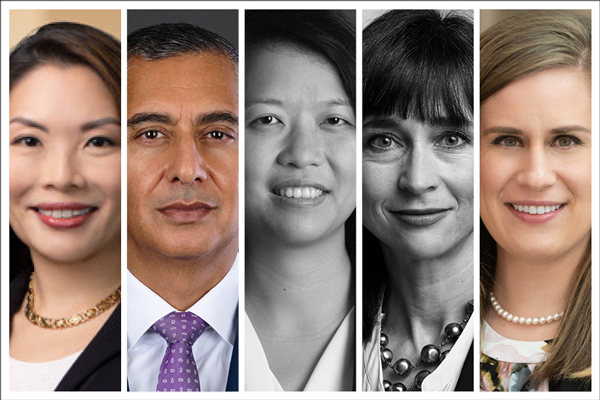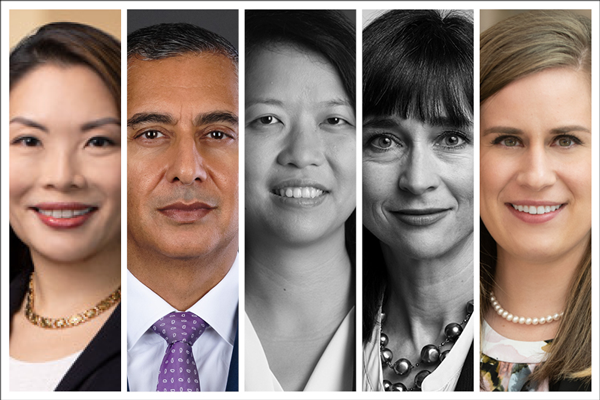
As COVID-19 disrupts business and leaves lawyers working from home, one big impact has been on the mental health of legal professionals. Law firms say they are looking to bolster their existing resources to enable their lawyers to get through these uncertain times.

SHIRIN TANG, Singapore managing partner, Morrison & Foerster
Morrison & Foerster has a longstanding global program focusing on employees’ mental wellbeing, which includes training partners and business leaders to manage and encourage positive mental health within their teams. As part of this program, we have been providing COVID-19 “community support” through various initiatives, including in Asia. Firm leadership, led by our mental health steering committee, sets an open and encouraging tone by circulating a weekly “check-in” email to everyone firmwide, candidly discussing the mental health challenges of the pandemic and providing helpful resources. One initiative that employees have found particularly helpful is a live webinar series titled “The New Normal – How to Work, Parent, and Self-Care During the Crisis.” Led by family therapists, the series provides guidance and comfort during the pandemic, through which colleagues receive emotional support and strategies to manage feelings of isolation or anxiety, remote work, home-schooling and co-parenting (with separate sessions based on the age groups of their children), and other issues during these trying times. The webinars begin with an overview of topical “challenges and opportunities, then address questions and concerns submitted by attendees in advance. Following the strong reception of these internal programmes, we have offered similar events for clients and friends of the firm.
SATPAL GOBINDPURI, Asia regional co-managing partner, DLA Piper
At DLA Piper, we have always prioritised the health, safety and wellbeing of our employees. Healthy, happy and productive employees are critical to the success of our firm. Employees in Asia generally operate in high-pressure environments with long working hours, and as such can be particularly susceptible to developing depression, anxiety and other serious mental health issues. Mental health is increasingly recognised as equally important as physical health, however, the discussion of mental health is often still avoided due to shame, stigma, or a lack of general knowledge. As an employer, we have a duty of care to ensure all our employees have access to mental health support services, as well as playing a role in wider society to help to reduce the stigma surrounding mental health. The COVID-19 pandemic has been extremely stressful for everyone and has brought a renewed focus on mental health. We recently launched our Employee Assistance Programme (EAP) which consists of many components, but at its core, it provides short-term, solution-based counselling to all of our staff members and their family members, either by telephone, face to face or via the internet, 24 hours a day, seven days a week. In addition to counselling, employees can access an online portal containing a multitude of health and wellbeing resources including information and advice on coping with anxiety, parenting during the COVID-19 outbreak and key tips on working from home.
MAY TAI, Asia managing partner;
DANIELLE KELLY, head of diversity and inclusion, Herbert Smith Freehills
Our existing systemic approach to mental health and wellbeing has been essential to supporting the mental health of our people during the COVID-19 outbreak. This includes the Employee Assistance Programme (EAP), our global mental health champion programme and a range of online resources. But these have been extraordinary times - early in the crisis, our in-house psychologist provided a workshop for people leaders on how best to support their teams remotely during this crisis. Over the past four months, we have curated an online library of articles, webinars, videos and factsheets available to our people, covering stress, dealing with uncertainty, health, parenting, eldercare, etc. In disconnected times, the personal touch has been essential. With crisis teams active in each office in Asia, communication and check-ins have greatly increased. HR teams and team leaders have stayed in touch with their people regularly and supported those at risk of isolation or in need of special assistance. As restrictions on office facilities begin to relax, we are now surveying our people to understand concerns about this phase of “reopening,” and adjusting our plans office by office to respond to that feedback. There have been two key learnings for us as we navigate this crisis. The first is the importance of having an organisation-wide systemic approach to mental health so that we can quickly leverage these systems in a time of crisis. The second is the ease with which our people and clients have adapted to online learning – which has opened a range of possibilities for us to continue online learning options as we emerge from the pandemic.
KRISTA LARSON, director of employee wellbeing, Morgan Lewis & Bockius
For more than a year, Morgan Lewis has formalised its commitment to well-being through ML Well, a multi-dimensional program designed to promote thriving among our lawyers and professional staff. The firmwide nature of ML Well’s infrastructure, including a Global Working Group with members in Asia—which already included a broad spectrum of virtual well-being initia-tives and an information portal—made for a seamless transition in programming in the face of COVID-19. In addition to our existing mental health workshop and monthly Action Impact video series where I address a range of topics, we now host a variety of virtual programs, such as firmwide meditation breaks and stress management workshops, all via phone and streaming services. We have also increased the frequency of communication about the firm’s well-being resources, including daily tips, strategies, and infor-mation about ‘well-being while social distancing’ and working remotely. This expanded content emphasizes the benefits of mindfulness, time management, nutri-tion, movement and connectedness, and it includes resources such as websites parents and caregivers can visit for help with home-schooling, and stories of resilience from across the Morgan Lewis community that help keep us connected while we’re apart. Additionally, we recently rolled out multiple enhancements to our behavioural health benefits, including virtual therapist, psychiatrist, and nutritionist services through telehealth. Especially now as people around the world engage in social distancing, we’re glad to be able to offer virtual resource so people can continue to seek professional support for behavioural health.
To contact the editorial team, please email ALBEditor@thomsonreuters.com.




